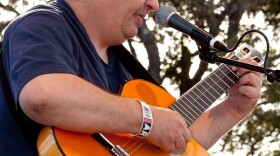Austin’s a lonely place, but it’s not alone.
A new survey from health insurance giant Cigna found Austin has a higher-than-average concentration of people – particularly, younger people – who feel loneliness or disconnection from those around them.
Sixty percent of Austinites feel loneliness, compared to the 54 percent national average.
The 20,000-person online survey was conducted across the U.S. in February. Cigna collated 17 regional profiles of loneliness in major cities.
The 20-question survey asks whether subjects feel understood or included, whether they feel fulfilled in relationships, whether they feel they have a good work-life balance and whether they feel physically and mentally healthy.
Researchers found 2 out of 5 Austinites felt loneliness and 1 out of 5 rarely, if ever, felt included.

The loneliness in Austin was punctuated by how sharply it affects younger Austinites. According to Cigna’s research, 18-34-year-old Austinites registered a loneliness score – a widely used metric devised by UCLA researchers in 1978 – that was 6.2 points higher than those over 55. Those feelings were partially attributed to lack of physical activity, in-person interaction or simply having someone they feel they can talk to, Cigna said.

Additionally, the study found:
- Just over half of Austinites surveyed sometimes or always feel either alone or "left out." (Those are two separate measures.)
- Forty-seven percent of Austinites sometimes or always feel their relationships aren't meaningful.
- Half of Austinites feel isolated.
- Sixty percent of Austinites sometimes or always feel like nobody knows them well.
Overall, Generation Z was the loneliest generation in the survey, with more than half identifying with 10 of the 11 factors associated with loneliness. While younger generations may be more likely to use social media, the Cigna study found no correlation between social media use and loneliness.
But that pattern of loneliness seemed to dissipate, at least partly, with age, as loneliness seemed to taper off among Millennials, Gen Xers, Baby Boomers and members of the Greatest Generation, respectively.
Tampa, Fla., was the only region that had a loneliness score that was below the national average. The 14 other cities had average levels of loneliness, while Austin and Houston were the only metro areas that had a score above the national average.




